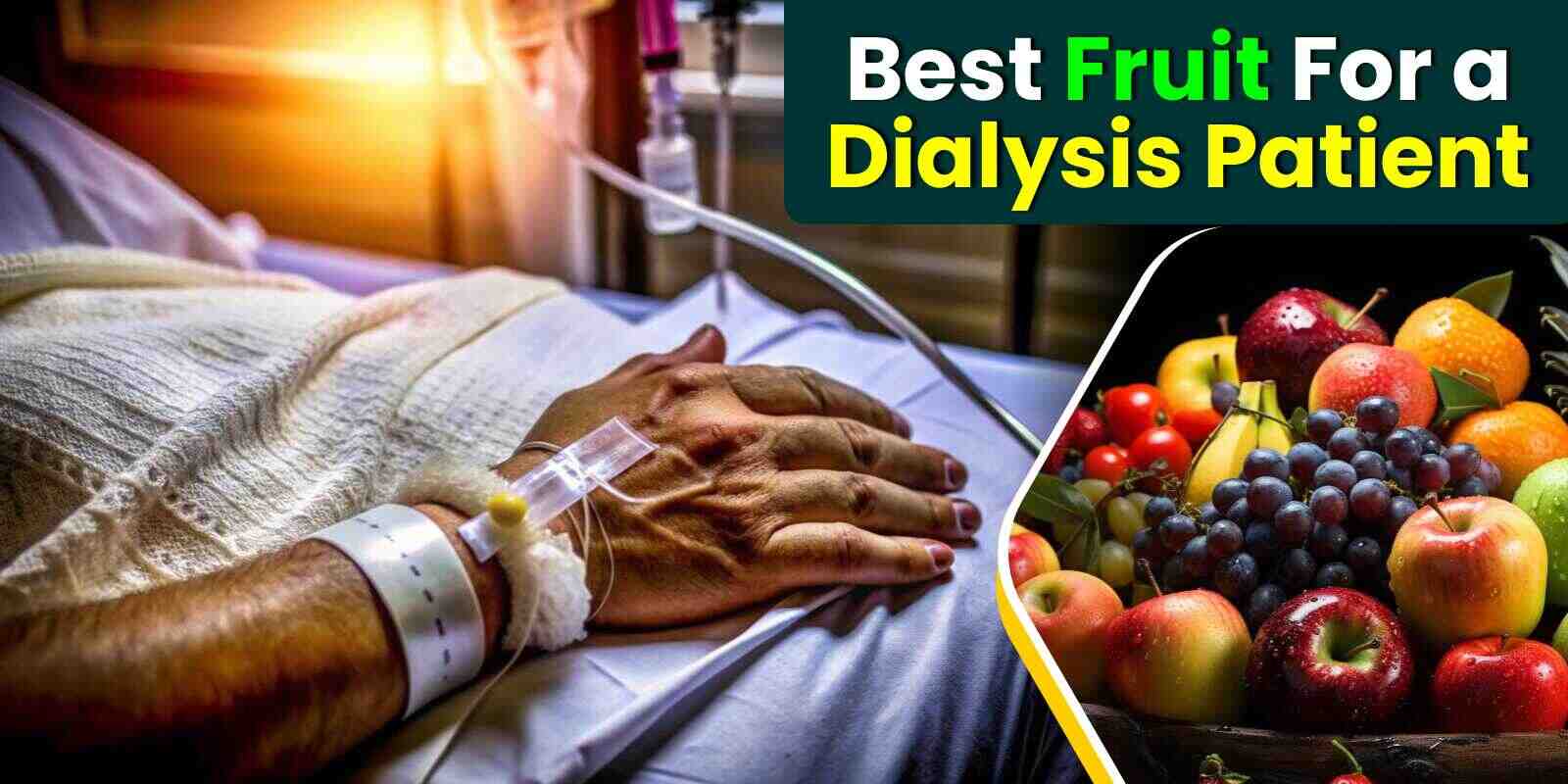Dialysis is a treatment for people whose renal functioning has significantly declined. Damaged kidneys cannot filter out wastes from the blood. This results in a buildup of toxins and wastes in the body. As a result, the other functions of your body start to get negatively impacted. Dialysis does the filtering job of the kidneys by removing wastes and toxins from the body via a machine. There are two main types:
- Hemodialysis
- Peritoneal dialysis
In both types of dialysis, there could be minor or major side effects accompanying the treatment. Sometimes, you may also have to undergo dialysis 2-3 times a week, depending on the severity of your kidney damage. Going through dialysis may also result in weakness in the body. That is why, taking a balanced diet during dialysis becomes vital. Fruits play a major role in strengthening our renal functions. This article will shed more light on the best fruit for a dialysis patient and fruits for dialysis patients to avoid.
Best Fruit for a Dialysis Patient
Fruits form a vital part of a well-balanced diet. As mentioned briefly in the introduction, dialysis can result in persistent weakness in some renal patients. Therefore, satisfying the nutritional needs during dialysis is necessary. Below are some of the best fruit for a dialysis patient:
- Cranberries: Cranberries are loaded with potent antioxidants like tannins and proanthocyanidins. This berry is often considered to be the best fruit for a dialysis patient, as it safeguards the kidneys against potential damage. Cranberries also exhibit diuretic properties that encourage urine production. This helps in the smooth removal of toxins from the body and improving renal functions. Cranberry juice, according to some scientific studies, has also been found effective in reducing creatinine levels in the body.
- Blueberries: Blueberries are loaded with antioxidants and these antioxidative compounds help avoid medical conditions like diabetes, hypertension, and obesity. These health disorders are directly linked with deteriorating kidney functions. Additionally, blueberries are good sources of essential vitamins and minerals like vitamin C, vitamin K, vitamin E, iron, zinc, copper, and folate.
- Raspberries: Another berry fruit that is good for dialysis patients is raspberry. It is rich in vitamins, antioxidants, and fiber. These minerals maintain gut health and keep a check on potassium levels in the body of renal patients.
- Melons: Watermelon and honeydew melons have shown good results in lowering creatinine levels in the body. Melons also contain vitamins, minerals, and antioxidants necessary for the healthy functioning of our kidneys. The high water content in the melon fruits makes them the best fruit for a dialysis patient.
- Oranges: Oranges have vitamin C, a vitamin known for its antioxidative properties. Furthermore, this citrus fruit is rich in fiber, which improves digestion. Oranges also lower oxidative stress in the kidneys and help dialysis patients manage their renal health well. These citrus fruits are also excellent at controlling inflammation in the kidney tissues.
- Strawberry: Strawberries have very little potassium and the presence of dietary fibers in these berries helps stimulate digestion and strengthen renal functions too.
- Red grapes: Red grapes have flavonoids, compounds that effectively control inflammation. These grapes help avoid heart disease, diabetes, and various health issues. The anti-inflammatory properties of this fruit put a check on the frequency of infections in the kidney tissues. That is why, it is the best fruit for dialysis patients.
- Apples: Apples are loaded with antioxidants that keep a check on renal damage in the body. With a high quantity of fiber, apples are great fruits for promoting healthy digestion and aid in waste elimination as well.
- Pineapples: Pineapples have an enzyme called bromelain that has anti-inflammatory properties. This enzyme helps reduce inflammation in the kidneys. Pineapples also have diuretic properties that promote urine production and boost the process through which waste products are eliminated from the body.
- Cherries: Cherries are rich in anthocyanin (a strong antioxidant), a compound that limits inflammation in the body. Scientific studies have linked the consumption of cherries with a decreased risk of diabetes, heart disease, kidney issues, and other glandular disorders. Cherries are rich in nutrients such as calcium, phosphorus, iron, potassium, glucose, beta-carotene, and manganese.
Fruits for Dialysis Patients to Avoid
Dialysis patients are often recommended to avoid fruits that are high in potassium. Therefore, bananas, avocados, apricots, kiwis, prunes and prune juice, and dried fruits are the fruits for dialysis patients to avoid. Consuming fruits with high potassium levels can aggravate issues in renal patients.
Dialysis is the standard procedure for people suffering from significant renal damage. It lengthens the life span of renal patients and assists them in leading a quality life. However, you must take good care of your body during dialysis as it can have side effects. Consuming the best fruit for dialysis patients and knowing fruits for dialysis patients to avoid will help you maintain your renal health during dialysis. However, you must have a thorough consultation with your doctor before you consume or avoid specific foods for your renal health.
Disclaimer:- The purpose of the content on this page is not to substitute any professional medical advice but to only provide information to the reader. If the reader is a kidney patient, we recommend not making any diet or routine changes without consulting his/her doctor or dietitian. For appointments, call at our 24×7 helpline: +91-9821929797 or visit www.karmaayurvedahospital.com.

